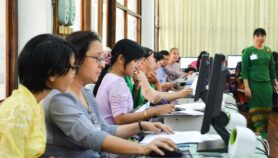Send to a friend
The details you provide on this page will not be used to send unsolicited email, and will not be sold to a 3rd party. See privacy policy.
Scientists’ work is often evaluated using citation statistics compiled by a US company ISI. But a group of Chinese researchers argue that the ISI’s coverage of scientific journals from non-English speaking countries is too limited, and that the livelihood of many respectable journals has been an unintended casualty.
They say that even though the ISI should not be held responsible for problems in doing science in developing countries, it can certainly be more accurate in its analysis of scientific achievements in places such as China, and thus help to promote international scientific communication.
Link to full text
Reference: Nature 415, 732 (2002)
See also:
The impact-factors debate: the ISI’s uses and limits













